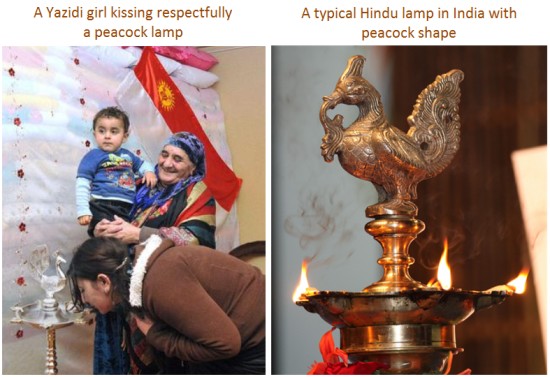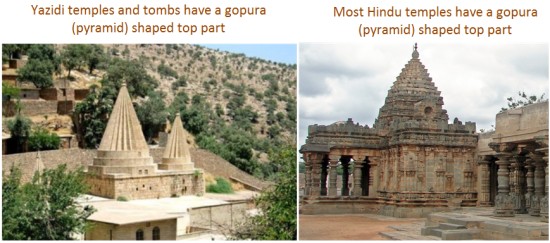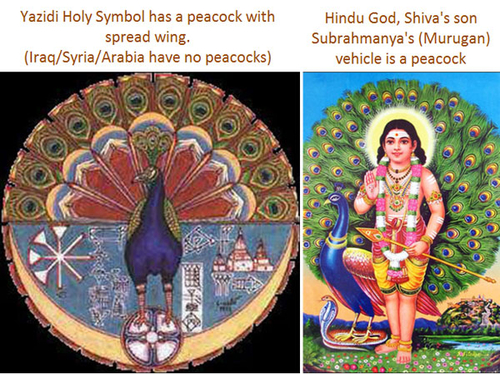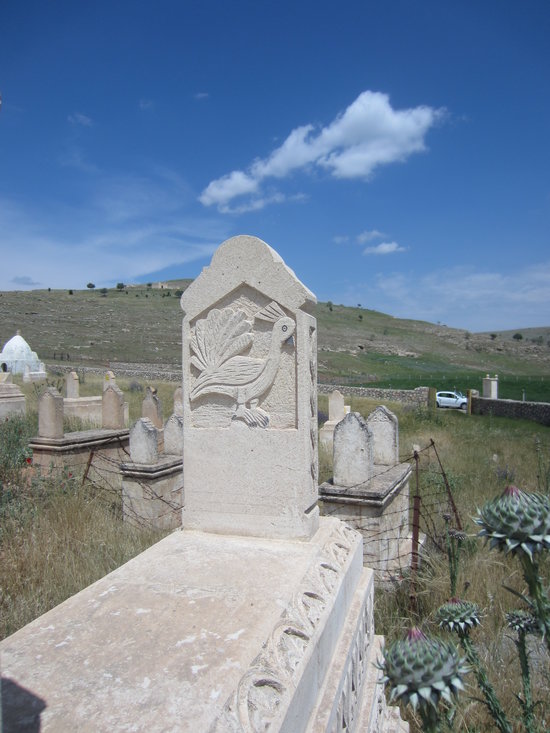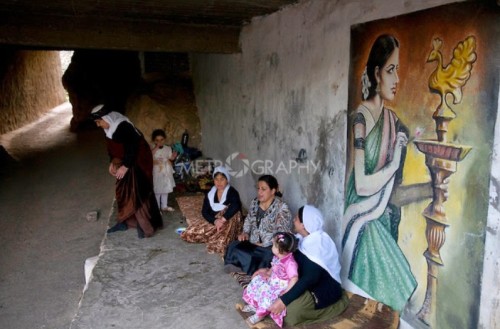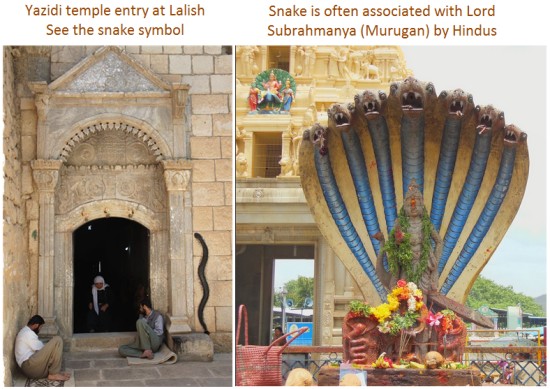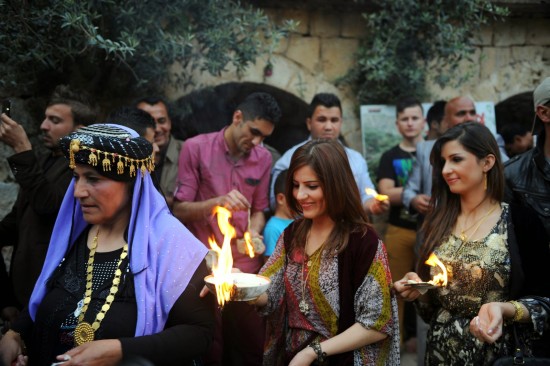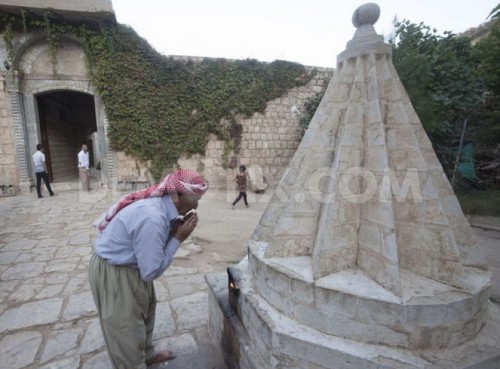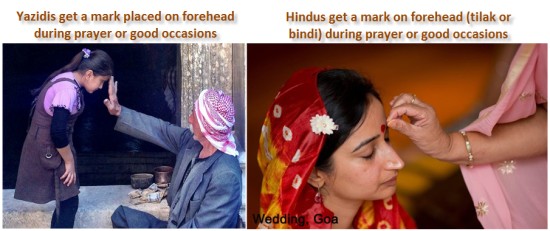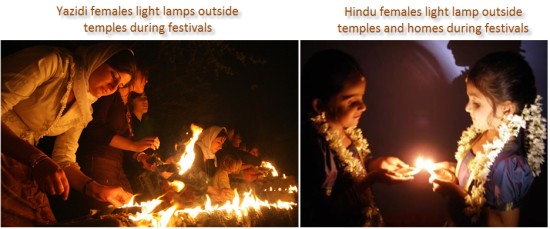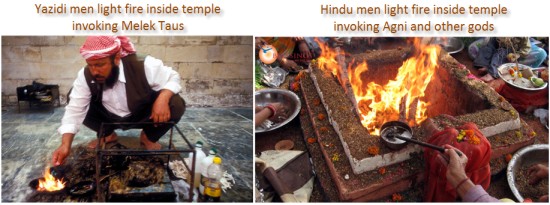
| YAZIDIS AND ARYANS Yazidism is the oldest religion that are associated with Kurdistan. It is the oldest and first religion in Kurdistan. Most of the 700,000 members of the ethno-religious group known as the Yazidi people live in Iraq and Syria or the diaspora. For centuries they have been subjected to persecution and many of them have converted to Islam and Christianity.
Yazidi people of Iraq and Lord Murugan the Peacock Angel King :
Iraq's Yazidi Culture and its Hindu Affinities :
Yazidis were in the news for a grave situation in northern Iraq. They are being literally exterminated by the terrorists. Thousands have died already and their mass killing via siege, starvation and other means is gut wrenching.
After researching into who these Yazidi people are we find a lot of similarity between Yazidis and Hindus of India. Yazidis can be a lost tribe linked to ancient Hindus of India. The overlapping features are clearly not some coincidences that you will find among pre-Abrahamic religions of the world.
Yazidis kiss a peacock shaped lamp
Yazidis temples have pyramid shaped gopura just like Hindu temples
Yazidis symbol is a wing spread peacock, just like Hindu god Shiv's son, Subrahmanya's mount. The most important point to note is that peacock, the national bird of India, is a native of south and south east Asia or Africa. Not found in the area of Iraq or Syria at all.
Yazidis Tombstone with peacock
Yazidi mural on wall of their holy Lalish temple is unmistakably Hindu. You can see saree, which is an unofficial national dress of India.
Yazidi temple at Lalish has snake symbol at the entrance. You won't find this among other tribes of Arabia or Mesopotamia. For Hindus, Subrahmanya is the other avatar of snakes and worshiped very closely for all snake related pujas like Naga Panchami.
Yellow sun Yazidi symbol 21 rays Number 21 is sacred to Hindus.
Yazidi marry within their castes like Murids, Sheikhs and Pirs and Hindus also marry within castes.
Yazidis could have something like Gotra system (researching).
Any Hindu with even basic understanding of aarti plate, will see Yazidis as their own.
Yazidis believe in continuous rebirth and reincarnation. Same as Hindu Punar Janma concept.
Yazidis do not circumcise, a very rare thing in the middle east. Hindus also do not circumcise.
Yazidis pray with folded hands. Hindus pray very similarly to their Gods and Goddesses.
Yazidis pray at sun rise and sun set, just like Hindus. Both face the rising or setting sun when praying to sun.
Yazidis have a symbol similar to Bindi or Tilak during temple prayer, very similar to Hindu forehead custom.
For big celebrations, lighting lamp by females common to both Yazidis and Hindus.
Yazidis men worship Melek Taus by lighting fire in temples.
Hindus' do similar fire based worship to their Gods, with high regard for agni the fire.
There are more similarities popping up like the trident (Shiv's trishul), the vessels used during worship (kalash), the sound (something like dhol and shankh), sun worship methods and much more.
Yazidis are deeply connected to ancient Hindu civilization. Whether through Zoroastrian connection in Persia (today's Iran) or directly via migration, has to be researched.
Here are some of the rituals practised by Yezidis which is followed only by Hindus which proves their Indian origin :
|
